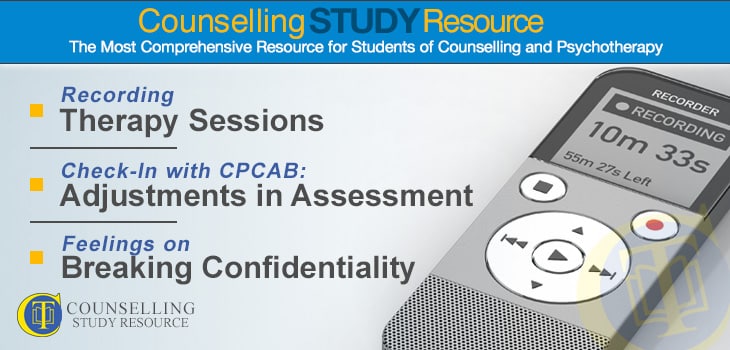Check-In with CPCAB: Reasonable Adjustments for Students (starts at 16.40 mins)
Rory speaks to Kelly Budd (Qualification Service Manager) at CPCAB (Counselling & Psychotherapy Central Awarding Body) about reasonable adjustments in assessment.
Some counselling students may be neurodiverse – for example, having specific learning difficulties (e.g. dyslexia) or physical impairments (e.g. to sight). If these affect their ability to perform in a standard assessment, CPCAB can adjust the style of this to meet the candidate’s needs and to ensure that there is a level playing field for all candidates.
While CPCAB tries hard to make its exam papers as accessible to all as possible (e.g. by using fonts shown by research to be the most legible), you might also be able to have:
- a computer (rather than hand-writing)
- a separate room
- a reader and/or scribe
- an interpreter
- extra time
- special font types or sizes
- coloured paper.
If you think you might need any such adjustments, it’s really important that you tell your tutor as soon as possible, as they can take time to organise. Communicate what your issue is, how it affects your study, and possible obstacles you can foresee on the course.
Each person’s difficulties are unique, and so – while the tutor has a responsibility to treat these with understanding and to take appropriate action - it’s up to you to make the first step by telling them if you’re struggling or expect to do so.
If you have had difficult experiences in education in the past, try not to put off by these introjects: the world of learning (in particular in a subject like counselling and psychotherapy) is very different from how it used to be in your school days.
For more information about CPCAB, please see its website. CPCAB is the UK’s only awarding body run by counsellors for counsellors.



